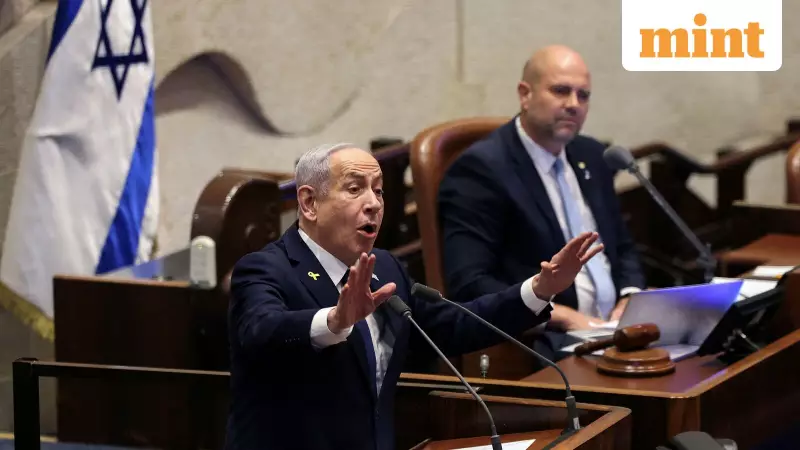
Israeli Prime Minister Benjamin Netanyahu has delivered a firm rejection of Palestinian statehood during his weekly cabinet meeting, creating a direct confrontation with United States efforts at the United Nations Security Council. The US is currently seeking approval for a Gaza resolution that anticipates Palestinian self-determination.
Netanyahu's Strong Stance on Palestinian Statehood
Our opposition to a Palestinian state in any territory has not changed, Netanyahu declared unequivocally on Sunday. The Israeli leader addressed criticism from within his ruling coalition regarding the US-backed UN resolution, whose final text remains unpublished.
Netanyahu emphasized that Gaza will be demilitarized, and Hamas will be disarmed, the easy way or the hard way, indicating Israel's willingness to use force if necessary to achieve this objective. This statement comes despite a ceasefire agreement reached five weeks ago after two years of conflict between Israel and Hamas.
US Diplomatic Efforts and International Support
The United States, supported by eight Arab and Muslim governments, issued a statement on Friday backing the resolution, describing it as offering a pathway to Palestinian self-determination and statehood. US Ambassador to the UN Michael Waltz elaborated in the Washington Post that the next phase involves establishing a multinational stabilization force.
This proposed force would have a mandate to demilitarize Gaza, dismantle terrorist infrastructure, decommission weapons used by terrorists, and maintain the safety of the Palestinian people over a two-year term. The UN Security Council is scheduled to debate the US resolution on Monday, though Russia has presented a competing proposal.
Regional Diplomacy and Future Challenges
The timing of Netanyahu's comments coincides with Saudi Crown Prince Mohammed al Salman's preparation for his first White House visit in seven years, scheduled for Tuesday with President Donald Trump. Saudi Arabia has repeatedly stated it can only normalize relations with Israel once there's agreement on a Palestinian state, creating a significant diplomatic hurdle.
While the ceasefire sponsored by President Trump has seen Hamas release Israeli hostages and Israel free Palestinian prisoners, three hostage bodies remain to be returned. Attention is now shifting to the more complex phase of removing Hamas from power in Gaza and reconstructing the devastated coastal territory.
A coalition of countries led by the United States has established headquarters in southern Israel to coordinate rebuilding efforts, disarmament operations, and humanitarian aid distribution for Gaza. These nations await clear instructions on proceeding, while Israel continues to occupy half of Gaza, and Hamas maintains authority through armed presence in the remaining areas where most residents live in severe conditions.





